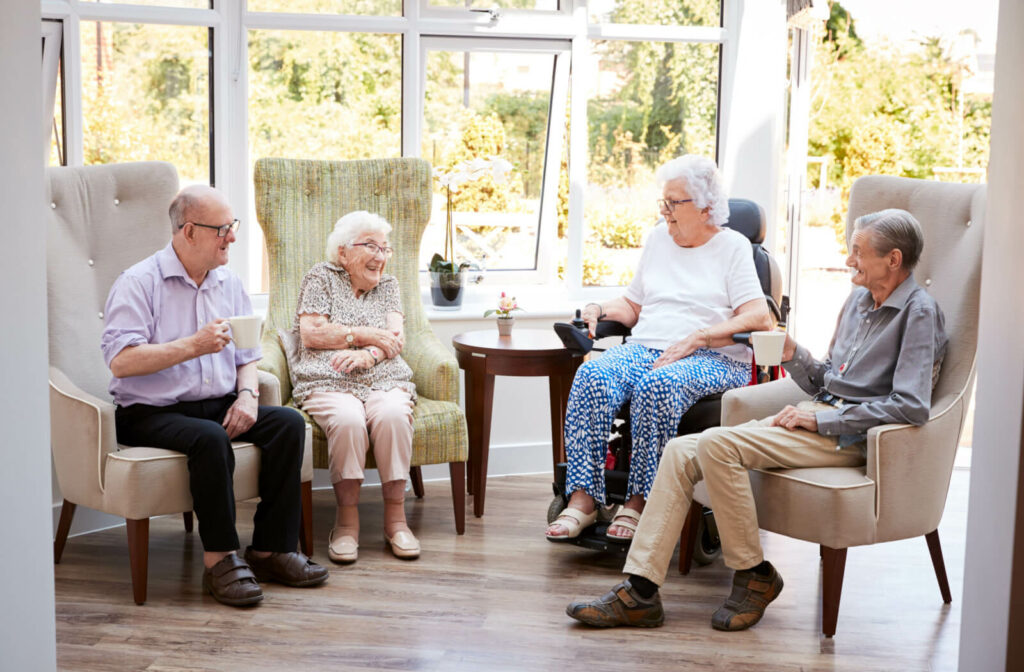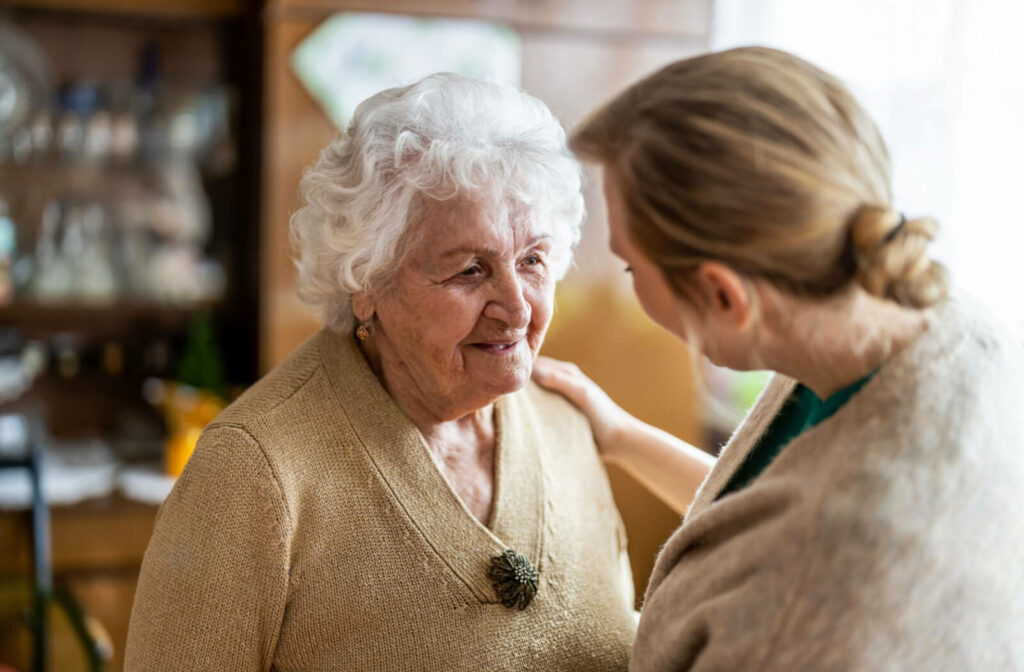Dementia is a group of conditions marked by cognitive decline that older adults commonly develop. Because it can affect the way they communicate, there are a few things to keep in mind when talking to someone with dementia:
- Focus on non-verbal communication
- Keep things simple and speak clearly
- Avoid negative and contradictory statements
- Be respectful and empathetic
- Use visual aids and objects for clarity
You’ll have to become familiar with adjusting the way you communicate if you’re the primary caregiver for a loved one with dementia. Another option would be specialized care for seniors dealing with cognitive decline. Memory care communities are typically staffed with professional caregivers who can navigate the potential complexities of assisting a resident with dementia.
What Is Dementia?
Dementia is a progressive decline in cognitive function that impairs a person’s ability to perform basic daily activities. It’s a complex neurological disorder that affects not only the individual but also their family and loved ones.
There are several different types of dementia, but the most common is Alzheimer’s disease. It’s estimated that 60-80% of all dementia cases are caused by Alzheimer’s. Other types of dementia include vascular dementia, Lewy body dementia, frontotemporal dementia, and mixed dementia. Each type of dementia has its unique symptoms and causes, but they all share the characteristic of a decline in cognitive function.
Communication Tips
You should ultimately be talking to someone with dementia with the same love and respect as you normally would. But there are a few things to consider when communicating with a senior with dementia.
Focus on Non-Verbal Communication
Pay attention to your body language and facial expressions when communicating with someone who has dementia. A person with dementia might not understand your words, but they can pick up on non-verbal cues.
Maintain eye contact and offer warm and supportive facial expressions that help the person feel at ease. Smile, hold hands, and use non-verbal gestures to help get your message across.
Speak Clearly with Simplicity
Use clear and simple language when speaking to someone with dementia. This will help make sure that your message can be easily understood. Keep your sentences short, and avoid using complex words or phrases. It may be helpful to use familiar language that the individual may be more likely to remember in some cases. Be patient with the person, give them time to process your message, and make sure to speak at a slow and consistent pace.
Avoid Negatives & Contradictions
People with dementia are more receptive to positive and affirmative statements. Avoid using negative words like “no” or “don’t.” Instead, try phrasing your words more positively, focusing on what the person can do. For example, instead of saying, “Don’t touch that,” you can say, “How about we try something else?” Most importantly, avoid correcting the person, even if they get things wrong.
Be Respectful & Empathetic
Communicating with someone with dementia requires patience and empathy. Try to put yourself in their shoes and understand how they are feeling. Show them respect and avoid talking down to them. Use their preferred name or nickname, maintain eye contact, find quiet places to communicate, and speak in a low and calm tone.
Be aware of the person’s mood, and adjust yourself accordingly. Listening to their stories and experiences is an important part of the communication process.
Use Visual Aids & Objects for Clarity
Visual aids such as pictures and objects can help make communication easier for someone with dementia. Show your loved one pictures of family members, familiar places, and objects they might associate with specific memories. Use brightly colored objects to draw the person’s attention and to help communicate a basic message. Additionally, having specific objects around can help jog the person’s memory when they have difficulty generating words.

You’re Not Alone in Helping Your Loved One
Embarking on this journey of caring for a loved one with dementia is no small feat. It’s a path filled with many challenges, but remember, you’re not alone. There’s an abundance of resources available to support you, from professional caregivers to memory care communities, all equipped to handle the intricacies of dementia care.
Remember, your loved one may not remember what you said, but they’ll never forget how you made them feel. So, let your interactions be guided by love, patience, and understanding. After all, this journey isn’t just about managing dementia—it’s about cherishing the moments together and making them count.If it’s time to consider senior living options, reach out to us to get more information on one of our communities near you.


